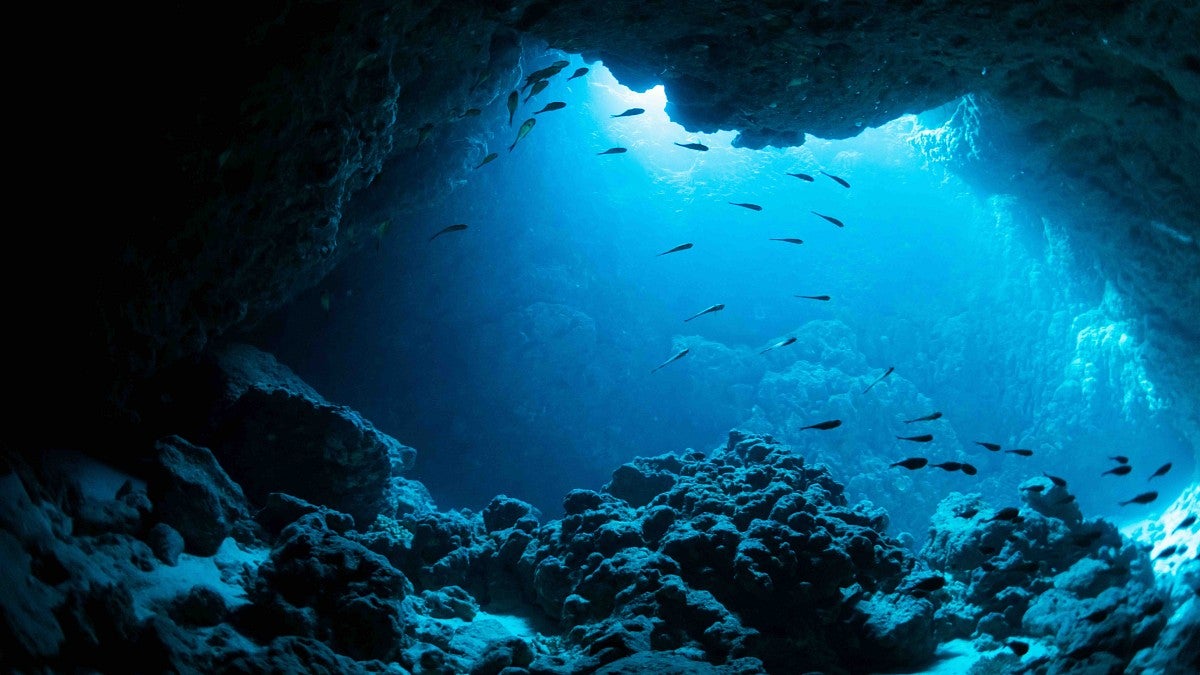
May 6, 2025-4:00pm
An upcoming conference will explore how ocean studies can be explored through the arts and humanities.
On Thursday, May 8 and Friday, May 9, a cross-campus co-hosted symposium will focus on how the arts and humanities can address the threats that ocean species face. Blue Visions: Thinking with Ocean Ecologies across the Arts and Humanities is co-hosted by the College of Arts and Sciences, the Center for Environmental Futures (CEF), Oregon Humanities Center, and the Department of English.
Co-organizers Stacy Alaimo and Megan Hayes wanted to bring in a wide variety of speakers for the blue humanities. Alaimo is the Barbara and Carlisle Moore Professor in English, and Hayes is a graduate student in the Department of Environmental Studies.
Featuring professors, students, and artists from various disciplines, the conference will highlight the intersection between the humanities, arts and science, and how this can generate greater understanding about oceanic issues. Through the arts, audiences can start to see the species that they’re trying to understand. On May 8, the event will be held at the Knight Library Browsing Room, and on May 9, at the Diamond Lake Room, EMU.
In an age where technology can act as a tool for discovery, it’s important to use it to help people visualize subjects they can't normally see, Alaimo said. That’s why the co-organizers chose to address oceanic topics using visual art mediums.
“In terms of ocean-related environmental studies, because none of us live in the ocean depths, visual representations are essential.” Alaimo said. “Marine life has long been valued for its mesmerizing beauty and its fascinating morphological diversity.”
Below the ocean’s surface contain lives and ecosystems, said Emily Eliza Scott, a faculty member at the College of Design. “This is one reason oceans have too often been treated as limitless reservoirs and/or dumping grounds. To attend to their texture and non-homogeneity is one way of advocating for their value,” she adds.
CEF co-directors Scott and Amstutz co-organized the event along with Alaimo and Hayes. An assistant professor, Scott holds a joint appointment in contemporary art history and environmental studies and is writing a book on artists who trace the structural dimensions of various environmental violences through the material traces left in their wake. Amstutz is an associate professor of history of art and architecture and is writing a book focused on bowerbirds that asks what it would mean to write about art from a multi-species perspective.
Ocean-related environmental studies, or blue humanities, address all matters of the ocean, such as marine species, ocean exploration, the impacts of climate change, colonialism, and many others. In addition to addressing these topics, blue humanities also explores transdisciplinary methods.
Alaimo, a professor of English and environmental studies, has worked to develop the blue humanities as a field. Her newest book, "The Abyss Stares Back: Encounters with Deep-Sea Life," analyzes multi-disciplinary accounts of deep-sea exploration.
Megan Hayes, one of the co-organizers, is a PhD candidate in the Environmental Sciences, Studies, and Policy Program, finishing a dissertation titled, “How to Love an Oyster.” Applying a range of methodologies, graduate students are conducting some of the most innovative work, Alaimo said.
“The three graduate students who will be presenting their work—Megan Hayes, Dara Craig, and Lydia Lapporte, are phenomenal—they're doing amazing research,” Alaimo said. “I'm inspired by all of them, and I’m happy to have them speak.”
In addition to CAS graduate students, the event features filmmaker Emily Packer, PhD candidate Joe Riley, and professors Tiara R. Naputi (University of California, Irvine) and Astrida Neimanis (University of British Columbia, Okanagan).
Alaimo said she hopes the event reaches a broad audience, including people who are already interested in ocean ecologies and students who are new to the field. She aims to continue the conversation surrounding ocean ecologies and keep people thinking about the topics discussed during the symposium.
“If they keep thinking about oceans and are provoked by this event, then they will be more concerned about ocean ecologies. For me, that's always the end point,” Alaimo said. “The field of the blue humanities has been growing really quickly—it's a fascinating area and it deserves more attention.”
— By Grace Connolly, College of Arts and Sciences
